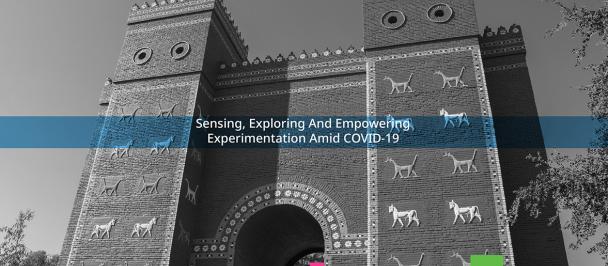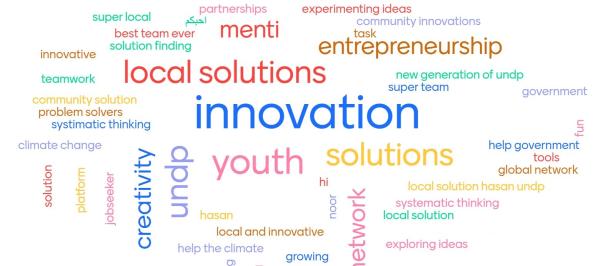Tapping into Passion and Talent: Exploring the Impact of Hosting the 25th Arab Gulf Cup and the Role of Local Solutions in Iraq
March 1, 2023
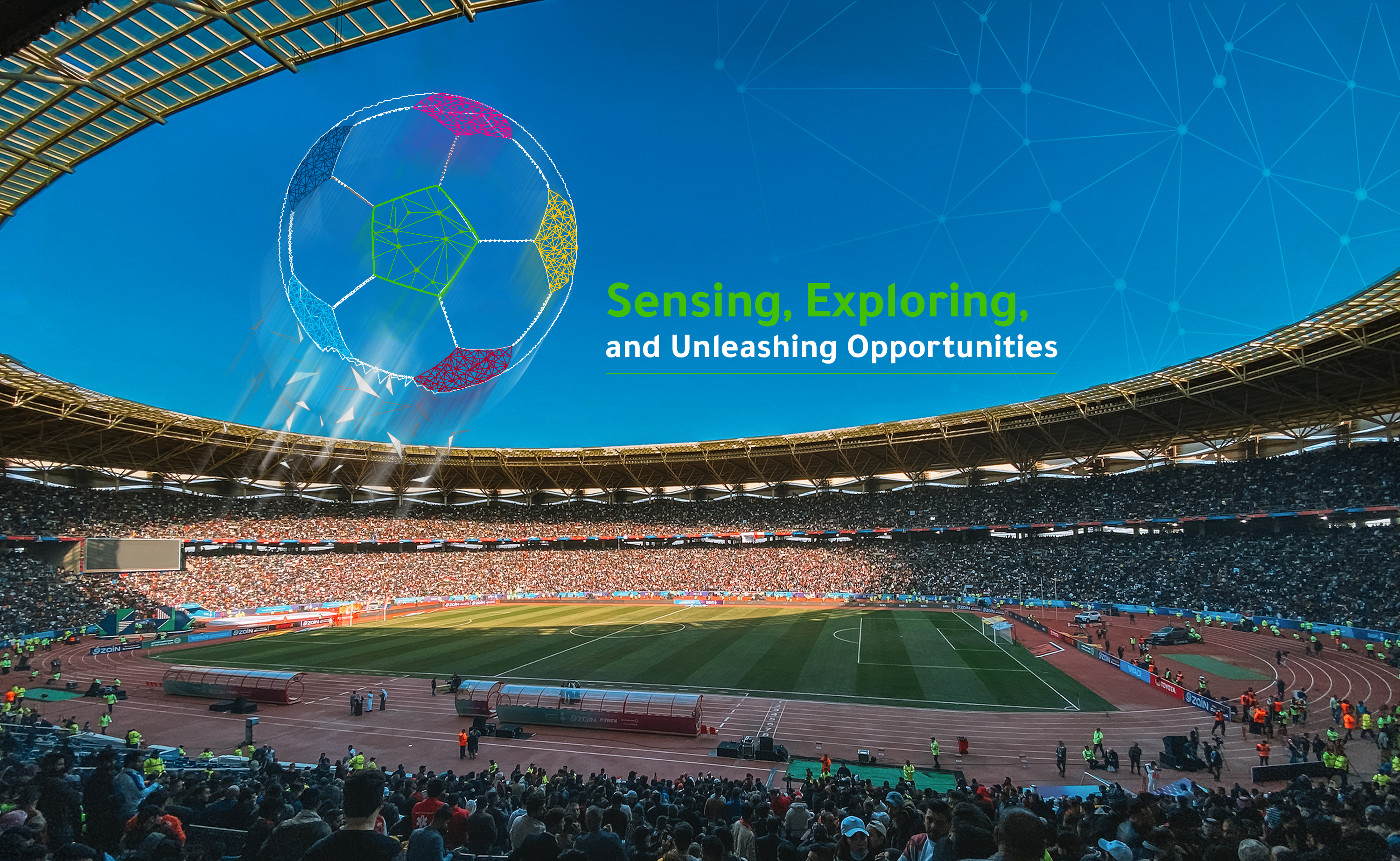
Basra International Stadium on January 19th, 2023 during the Final of the 25th Arab Gulf Championship in Basra, Iraq.
On January 19, 2023 at 9:47 pm, the sound of "Goal" echoed throughout Iraq, bringing with it a sense of pride and unity. From homes to streets, stadiums to fans zones, cafes to open spaces, the sound was a testament to the collective belief in Iraq, transcending religious, cultural, and geographic divides. This historic moment marks the triumph of Iraq winning the 25th Arab Gulf Cup championship, a celebration of strength and unity in the face of adversity.
The Arab Gulf Cup championship returned to Iraq after a 42-year hiatus, marked by an exciting win and comeback. Basra was the host city for the 25th Arab Gulf Cup, which ran from January 6 to January 19, 2023, with eight countries taking part, including Bahrain, Kuwait, Yemen, Qatar, Saudi Arabia, Oman, the United Arab Emirates, and Iraq. The championship was a resounding success with more than 50,000 Gulf visitors making their way to Iraq for the event, and record-breaking audience numbers, reaching over 750,000 throughout the tournament. This was a proud moment for Iraq and the entire region, as the championship trended on social media and news channels. Additionally, FIFA President, Gianni Infantino, visited Iraq to show his support for the championship, marking a significant step forward for the country and its football community.
Hosting successful sporting events, such as this championship, has the power to significantly boost Iraq's image and credibility, improve economic competitiveness, and attracting investment. The UNDP Accelerator Lab Iraq, which is currently focusing on developing a portfolio of interventions for re-imagining the social contract in Iraq, observed new patterns emerging from this championship with a positive impact on enhancing trust not only between Iraqi citizens and the state, but also between local communities. To uncover these patterns, the UNDP AccLab Iraq employed the tools of System Thinking Methodology, particularly the Impact Mapping tool

The impact mapping of Iraq hosting the 25th Arab Gulf Cup Championship.
During impact mapping analysis, it was revealed that the Arab Gulf Cup Championship had a great impact on citizens. UNDP AccLab Iraq discovered the existence of large football fan base in Iraq, with over 40% of Iraqi youth practicing football either formally or informally as amateur football players. It's important to note that the median age in Iraq is 20.2 years, and over 65% of the population is under 30 years old. Given this large youth population, the high percentage of youth involved in football warrants further exploration within Iraq’s sports ecosystem.
► An in-depth look at Iraq's sports ecosystem: A focus on the passion of local communities and amateur football players
A love of football runs deep in the hearts of the Iraqi people, with many cherishing childhood memories of playing the sport in the streets and open spaces of their neighborhoods. Using simple resources such as two rocks or a stack of books to define the goal area, young Iraqis have always found ways to play the game they love. Today, that love for the sport remains strong, with local communities showing their unwavering support for football, whether it's as passionate fans or amateur players.
In this context, we used System Thinking, interviews, and social media analysis to gain a deeper understanding of the challenges within the sports ecosystem in Iraq, with a specific emphasis on amateur football players. Our starting point was based on the available data which revealed that more than 540,000 young amateur football players in Iraq are registered with the Iraqi Football Association and practicing the sport within local teams. Additionally, over 16,000 of them are distributed across 110 football clubs throughout the country. However, a deeper exploration of the sports ecosystem of Iraq shows that there are more than one million amateur football players who are not registered yet and participate in local football teams at the district or local level. Typically, there are no fewer than five local teams composed of different age groups present in a single district in most Iraqi cities. It is inspiring to note that many of the professional players on Iraq's official football team, who are now living their dreams, began their careers playing on these local teams.
Despite the high number of amateur football players in Iraq, these aspiring athletes, whether registered or not, face several challenges that hinder their growth and progress in the sport. For instance, they may lack proper coaching and have limited access to basic equipment, with limited financial support for their activities. Also, the lack of media attention and spotlight on amateur players in local teams can result in their talent going unnoticed, limiting their chances for growth and recognition in the field. Furthermore, one key insight uncovered during our exploration was the existence of a disconnect between the amateur football players in Iraq and talent scouts, who are essential in discovering and assessing young players who show promise for professional football. This disconnection stems from several factors, such as the lack of effective communication channels like social media, the irregularity of competitive events organized by talent scouts/clubs, and the possibility of inequality and corruption that might prevent talented players from being recognized and nurtured.
When it comes to available infrastructure for the amateur football players in Iraq, one positive aspect lies in the fact that most Iraqi cities are equipped with playgrounds. Although the quality of these facilities may differ across districts, it provides aspiring amateur football players the opportunity to develop their skills and pursue their passion. However, during our exploration, some challenges that players may face when reserving these playgrounds were noted. The high demand, especially during weekends, makes securing a preferred time slot difficult. In addition, difficulties can be found with securing access to playground owners, the lack of a proper scheduling system, and inconsistent maintenance. It is important to note that most of the local teams in Iraq are self-funded, and thus must pay a nominal fee to reserve the playgrounds for their matches.
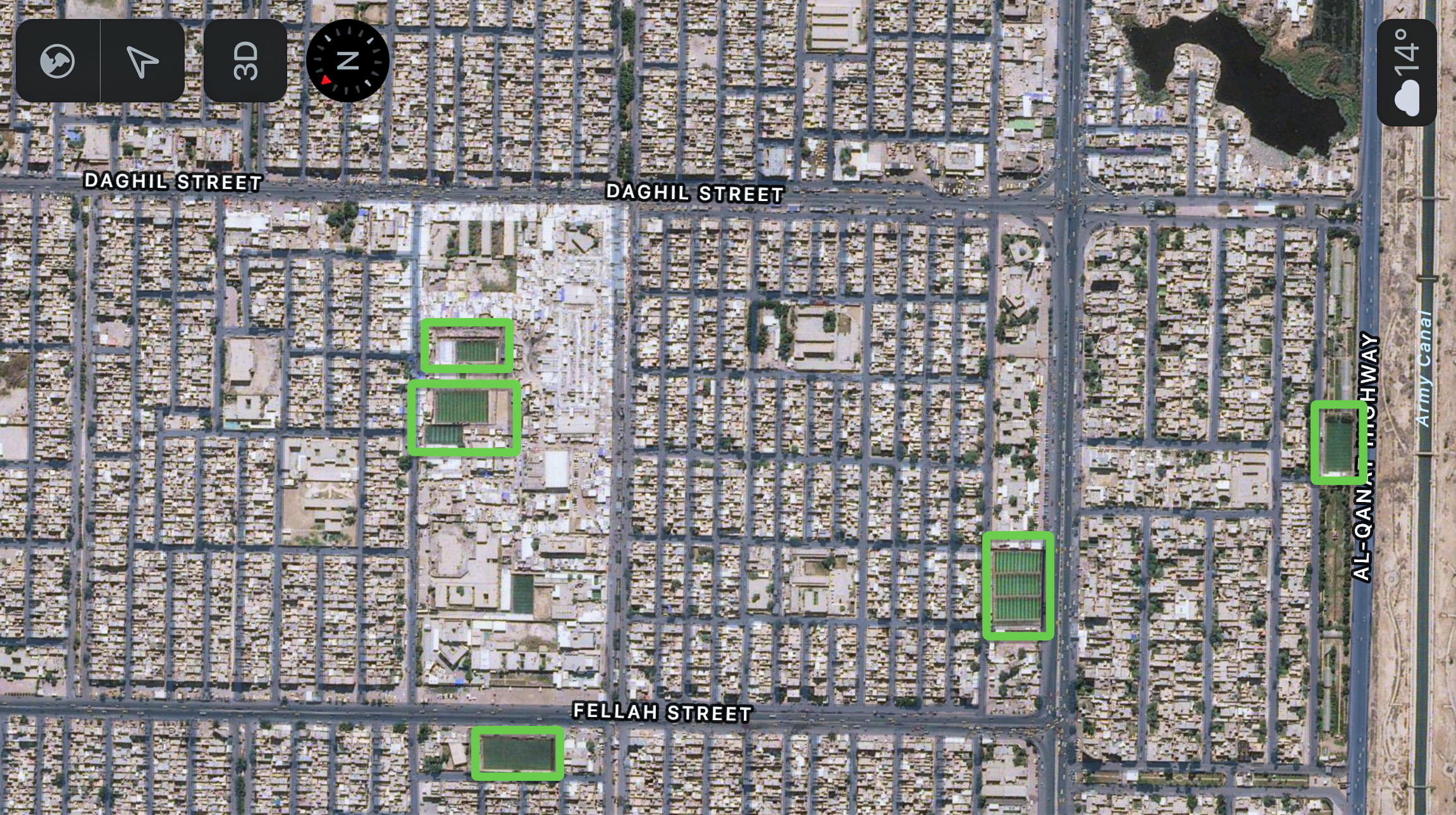
Satellite View of Al-Habibiya District in Baghdad Showing Playground Distribution
The 25th Gulf Cup Championship in Iraq is a historic turning point for recognition and support of the country's sport sector. The successful hosting of this event not only brought the country together in celebration, but also raised Iraq’s profile as a tourist destination among regionally and internationally. The successful hosting of the championship led stakeholders to acknowledge the potential of the sporting industry in Iraq and to stimulate investment in this sector. Therefore, the approach of the UNDP AccLab Iraq is to seize such opportunities, delving into their details, and create a room for locally driven solutions to arise in order to address challenges from a community-centric perspective. The 25th Gulf Cup Championship presents a tremendous opportunity for UNDP AccLab Iraq to make a positive impact on amateur sports in Iraq through local solutions.
► Revitalizing sports in Iraq with the power of local solutions
As a solutions mapper, I believe that locally driven solutions are key to unlocking sustainable and impactful positive change for a country's development challenges. By engaging with local communities and understanding their unique perspectives, local solutions can be tailored to meet specific needs and address pressing challenges in a more effective and efficient manner. In the context of supporting Iraq's sports ecosystem, based on the challenges identified in the sensing and exploring stage, the "washing machine" concept was used to embed local solutions within this ecosystem. The "washing machine" concept is an approach to building better ecosystems, where the ecosystem is seen as a machine with various components that interact to achieve a desired outcome. Within the UNDP AccLab Iraq, the 25th Gulf Cup Championship is seen as an incentivized component within the ecosystem, while local solutions are viewed as the change agents that can be introduced to achieve better outcomes. One of these local solutions is the "Laoob Application" solution, which was mapped and scaled up by the UNDP AccLab Iraq in 2022 as part of its solutions safari activities.
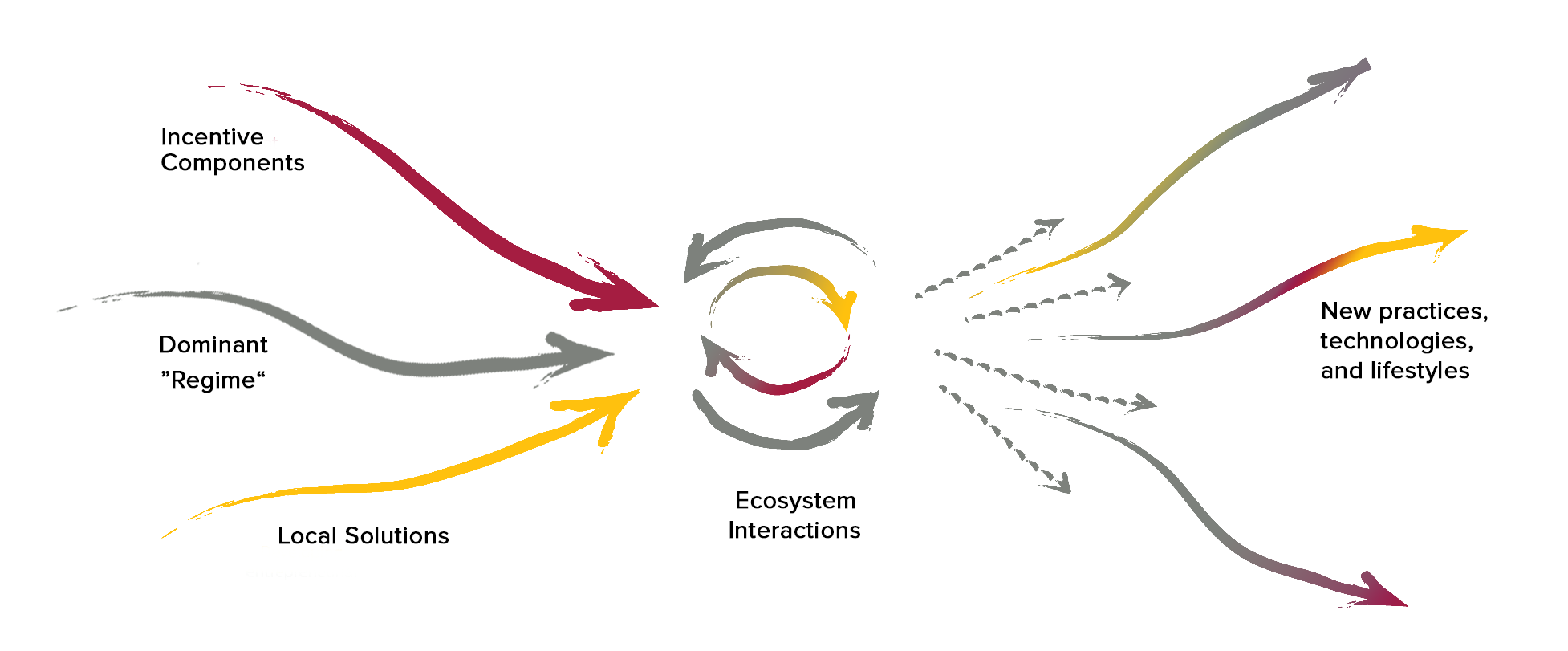
The Washing Machine Concept: Inspired by the green paper “Building Better Systems”, 2020.
Laoob, a name derived from the Arabic word meaning "skilled player," is a one-stop-shop for amateur football players in Iraq. The platform connects these players and fosters a community, providing opportunities to improve their skills and pursue their aspirations of becoming professional footballers. In addition, Laoob streamlines the reservation issues of local football playgrounds. The platform's mission is to unearth the hidden football gems within local communities and provide them with the support needed to reach their full potential. The key features of the Laoob app are:
- Player profiles: a complete player profile, featuring personal information, technical and physical details, match statistics, and evaluations from peers and coaches.
- Matchmaking: The platform links amateur football players with talent scouts.
- Match scheduling: players can create and organize matches with one another.
- Playground reservations: players can easily browse stadiums, learn about the services provided, and select a convenient day and time for reservation through a seamless process.
- Talent evaluations: utilizing technology, the platform organizes performance trials to evaluate, select, and promote talented players to clubs in Iraq and abroad.
As a solutions mapper focused on reducing youth unemployment in Iraq by mapping local solutions, I believe Laoob has great potential for impact. With a focus on approximately 40% of Iraqi youth, Laoob offers new opportunities for amateur football players and brings attention to a previously overlooked group. This is the first time in Iraq that a platform has been developed specifically for the amateur football player community. Hence, the UNDP AccLab Iraq further advanced Laoob by selecting it to participate in the Innovation Mission Competition, implemented by the UNDP AccLab Iraq in partnership with local start-up Codelab and leading tele-communication company Asiacell. The UNDP AccLab Iraq provided comprehensive support to Laoob in three distinct phases to help the platform reach its full potential.
- First, in the training phase, the Laoob team received focused instruction on human-centered design and Artificial Intelligence (AI). This training was aimed at helping the team develop the platform's features and tackle important problems in a user-centered way. The team learned how to incorporate AI into the platform to improve the connection between amateur football players and talent scouts.
- Second, the mentorship phase saw the team receive support from business and AI specialists over a period of six weeks. During this time, the team was able to further develop their prototype with the guidance of experienced mentors. The specialists helped the team to integrate AI into the platform to enhance its features and improve the user experience.
- Finally, Laoob won third place in the Innovation Mission Competition, earning financial support to further advance the platform. This support will help Laoob to continue developing its features, improve the user experience, and become the go-to platform for the amateur football player community in Iraq.
Nevertheless, Laoob has recently gained recognition and financial support from various institutions, including the Ministry of Labor and Social Affairs and the Invest my Idea Platform. Numerous institutions are taking notice of the great work being done by local solutions and providing the necessary support to help bring these solutions to life. This further reinforces the importance of the UNDP AccLab Iraq in amplifying local solutions and identifying potential change-makers within communities.
Through this journey, the UNDP AccLab Iraq learned the power of tapping into the interests and passions of Iraqi youth to create meaningful opportunities for them. The AccLab also recognized the importance of not disregarding any local solutions that cater to audiences previously overlooked, as these solutions are often created based on needs and specifically tailored to the target audience. In the end, the UNDP AccLab Iraq is overjoyed with the recent achievements of Iraq, including the successful hosting of the 25th Arab Gulf Cup and the growing popularity of sports in the country. With each step forward, we remain inspired and dedicated to making a positive impact in the lives of the Iraqi people.

 Locations
Locations
